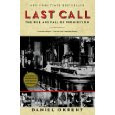 I prefer to read biographies and presidential histories on the lesser-known presidents, focusing on specific events for the "big guys". Previous books on Monroe, Polk, Ben Harrison have been pleasant surprises as interesting lessons in politics, insights into a specific time, or just compelling stories. That was my expectation in choosing to read about William Howard Taft instead of Roosevelt or Wilson. My mistake.
I prefer to read biographies and presidential histories on the lesser-known presidents, focusing on specific events for the "big guys". Previous books on Monroe, Polk, Ben Harrison have been pleasant surprises as interesting lessons in politics, insights into a specific time, or just compelling stories. That was my expectation in choosing to read about William Howard Taft instead of Roosevelt or Wilson. My mistake.Gould's book on Taft is well researched, positioned, and written, but he can only do so much with limited material. The fact is that not much happened during the Taft administration. He was Teddy's chosen successor, but nothing like him in ambition. A much more conservative Republican in both politics and style, his highlights were pushing legislation to tweak tariffs and most international relations issues were with the world powers of Mexico and Canada. Although his legacy shouldn't be hurt by the fact that a war didn't break out on his watch. But he also was not an adept politician, didn't surround himself with great people or look for advice when he should, essentially shooting himself in his foot. Arguably his rift with Roosevelt could have been avoided along with other blunders, which possibly could have resulted in a second term and Taft needing to deal with WWI. How history would have been different.
In the context of the times, Taft's administration does illustrate some of the trends. He approached the office more as a lawyer (or maybe judge), instituted some organization to the administration processes as were being implemented in industry and organizations across the country at the time as the scale of operations in an industrialized society required more organization. But this society required a lot more than just organization, and industrialization and urbanization were creating new problems for people seen in the past several books--from the steel laborers in Pittsburgh, to the Kansas farmers with economic imbalances with the railroads, to the disadvantaged immigrants in sprawling Chicago, to the local bank customer in New York. The trend toward progressivism was clearly taking hold, but the conservative side of the Republicans were essentially disregarding the inevitable. And as the party had been in power more or less for decades, in hindsight it is not surprising that the party leadership could be assumed by a master lawyer/admisitrator than necessarily a master politician and leader. If anything Roosevelt is the more surprising anomaly in personality.
As I said, Gould's book is fine. The material is incredibly dry, but he gets credit for presenting it in as compelling a manner as possible. I would read a book on a better topic by him. 2/5 stars.
(Read April 2011)


![Benjamin Harrison: [The American Presidents Series]](http://photo.goodreads.com/books/1172646391s/203410.jpg)



